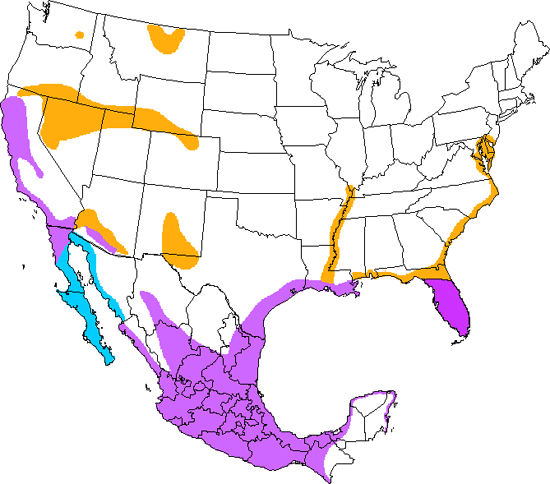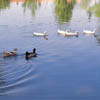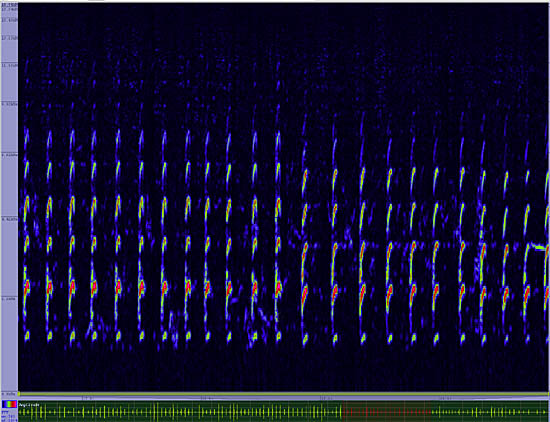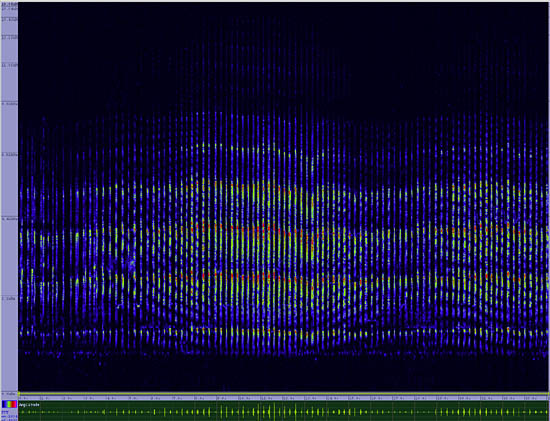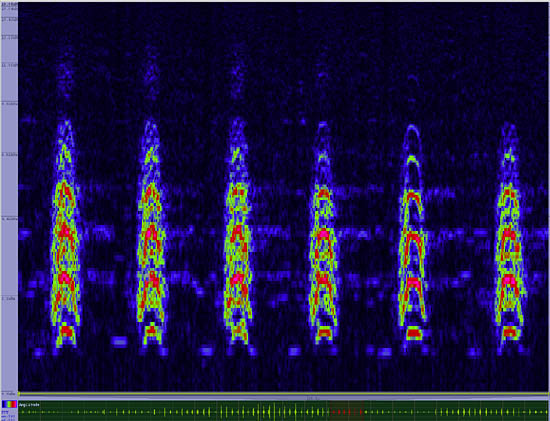Black-necked Stilt
Himantopus mexicanus

Sandpiper Like
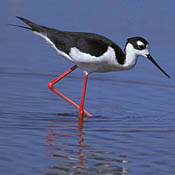
Length: 14 in. (36 cm )
Found wading in marshes, wet mud and flooded fields, the Black-necked Stilt usually occurs in small colonies. It nests on the ground on little islands or hummocks in wet areas, and the shallow nest is lined with pebbles, sticks and clam shells. Adults vigorously protect nest sites by calling loudly and flying close over the head of intruders. They will also fake a wing injury to draw the enemy away from the eggs or young. Food is picked from under water and consists of invertebrates, small fish, tadpoles and occasionally seeds. This species is considered threatened in Hawaii.
The four-digit banding code is BNST.
Bibliographic details:
- Article: Black-necked Stilt
- Author(s): Dr. Biology
- Publisher: Arizona State University School of Life Sciences Ask A Biologist
- Site name: ASU - Ask A Biologist
- Date published: 13 Jul, 2017
- Date accessed:
- Link: https://askabiologist.asu.edu/activities/bird/black-necked-stilt
APA Style
Dr. Biology. (Thu, 07/13/2017 - 15:36). Black-necked Stilt. ASU - Ask A Biologist. Retrieved from https://askabiologist.asu.edu/activities/bird/black-necked-stilt
Chicago Manual of Style
Dr. Biology. "Black-necked Stilt". ASU - Ask A Biologist. 13 Jul 2017. https://askabiologist.asu.edu/activities/bird/black-necked-stilt
Dr. Biology. "Black-necked Stilt". ASU - Ask A Biologist. 13 Jul 2017. ASU - Ask A Biologist, Web. https://askabiologist.asu.edu/activities/bird/black-necked-stilt
MLA 2017 Style
Be Part of
Ask A Biologist
By volunteering, or simply sending us feedback on the site. Scientists, teachers, writers, illustrators, and translators are all important to the program. If you are interested in helping with the website we have a Volunteers page to get the process started.

